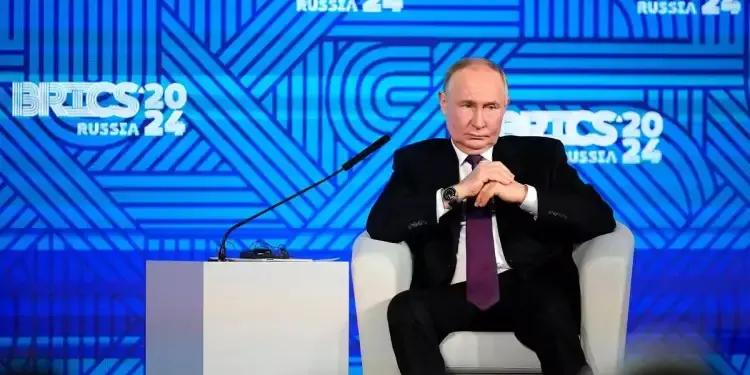The BRICS summit organized by Russia is a major event that draws attention, especially in Africa. With the recent membership of Egypt and Ethiopia, as well as the participation of other African countries such as South Africa, this group shows an increasing desire to move away from the institutions dominated by the West. In the midst of a war in Ukraine, Russian President Vladimir Putin sees this summit an opportunity to demonstrate that Russia is not isolated, despite Western sanctions.
The summit, which brings together leaders from several emerging countries, emphasizes economic cooperation and dedollarization of trade. Initiatives such as the increased use of national currencies for bilateral trade and the reduction of dependence on the US dollar are at the center of discussions. This approach reflects an increasing distrust of the economic sanctions imposed by the West, perceived as a political weapon.
Africa, the new center of gravity of the BRICS
African countries, in particular, see the BRICS a chance to diversify their economic partnerships. By turning to Russia, China, and other member countries, they seek to strengthen their financial autonomy and to free themselves from the domination of traditional international financial institutions. The integration of Ethiopia and Egypt, as well as the interest of other African nations to join the Alliance, testify to the growing importance of this block for the African continent.
More than 30 countries have expressed the wish to join the BRICS, Russian president Vladimir Putin said on Wednesday at a group meeting in Russia. This figure shows the growing attraction of this coalition for many countries that seek to move away from the traditional Western spheres of influence.
A promising economic dynamic
According to forecasts, the growth of the economies of the BRICS countries will reach 3.8 % in 2024-2025, against 3.2 % in developed countries. For Putin, this summit is also a way of showing that Russia remains an influential world player, despite Western pressures. The BRICS, representing around 45 % of the world’s population and 25 % of global GDP, form a counterweight to Western powers, offering African and emerging economies an alternative on the international scene.








